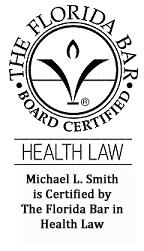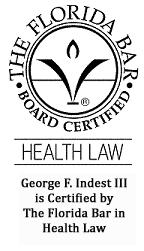


Employment law is the name given to the branch of civil law that covers the laws and regulations governing labor relations and employment issues, such as collective bargaining, discrimination in the workplace, sexual harassment, occupational safety, wage and hour requirements, and workers’ compensation. Federal statutes, such as Title VII of the Civil Rights Act of 1964, the Americans with Disabilities Act, and the Age Discrimination in Employment Act, as well as state laws protect employees from discrimination based on age, disability, sex, race, color, religion, sex, or national origin. The Family and Medical Leave Act, another federal statute, allows employees to take up to 12 weeks of unpaid leave for certain family and medical reasons, without having to worrying about losing their jobs.
An employment contract is an agreement between an employer and an employee setting out the important terms and conditions of employment, including wages, hours, holiday and sick leave, and disciplinary and grievance procedures. Although ordinarily an enforceable contract does not have to be in writing, it is very difficult to prove you have an agreement unless it is. Certain important contracts, including contracts over a certain amount of money and contracts which are for a year or more, must be in writing under the statute of frauds, in order to be enforceable. Certain states are know as “at will” employment states, which means that, unless you have a written contract that specifies otherwise, your employment may be terminated at any time at the will of your employer or you may quite any time, at your will. In some circumstances, a written employee handbook or policies and procedures manual, can take the place of a formal, written employment contract, as can state law governing issues like working hours, working conditions, and the minimum age of employees.
In order to have a degree of security, then you should have a written employment agreement that sets forth such matters as your salary, your benefits, the length of time during which you are guaranteed employment (usually a year at a time), bonuses (if any), and the circumstances under which your employment may be terminated involuntarily.
If you have been terminated as an employee, you will usually be entitled to collect unemployment compensation payments, if you have worked a certain minimum amount of time. Even if you have been fired for a certain reason, such as poor performance or excessive absences, you still may be entitled to collect unemployment compensation. Even if the employer tries to deny your claim for unemployment, you should still request a hearing and attempt to obtain it. You may only be denied unemployment compensation for a very few limited reasons such as serious misconduct. It is very had for an employer to prove the type of misconduct that will prevent you from collecting unemployment benefits.
Florida has a law which allows restrictive covenants (sometimes called covenants not to compete or noncompetition agreements) to be enforced by an employer, although there are many states which have prohibited these. However, the conditions under which a restrictive covenant may be enforced are very strict and it may be difficult for an employer to obtain enforcement, especially in the case of a physician or licensed health care professional. Since defending against the enforcement of a restrictive covenant can be expensive, it is best to attempt to avoid signing one (if you can) or to negotiate the most favorable one that you can, before you sign it. You should assume that your employer will be able to enforce it against you if you are terminated or if you quit, if you are in a state (such as Florida) that does allow enforcement.
The Health Law Firm represents both employers and employees in the health care industry in negotiating and preparing employment contracts and independent contractor agreements. We represent employers and employees in terminating, voiding, or negotiating out of unfavorable contracts. We litigate contracts for employers and employees and defend against such litigation. We have a great deal of expertise in the enforcement of restrictive covenants (covenants not to compete or noncompetition agreements) and especially in assisting physicians in defeating the enforcement of restrictive covenants. We represent employers in unemployment compensation hearings, in defending against EEOC (discrimination) complaints, and in defending litigation involving wage and hour disputes, as well as other types of contract or employment litigation.
Main Office • 1101 Douglas Avenue, Suite 1000, Altamonte Springs, FL, 32714
By Appointment • 37 N. Orange Ave., Suite 500, Orlando, FL 32801
By Appointment • 201 E. Government St., Pensacola, FL 32502 • Telephone: (407) 331-6620 & (850) 439-1001 • Telefax: (407) 331-3030
Medicare/Medicaid Audits, Health Care Law, Contracts, Hospital Privileges Hearings, Investigations, DEA Defense, Board of Medicine Defense, Fraud Defense, Administrative Hearings, PRN, IPN, Professional Licensing, Medicare/Medicaid Fraud Defense, Nursing Law, Compliance Plans, Hospital Law, Board of Dentistry, Board of Nursing, Board of Pharmacy, Board of Psychology, White Collar Crime, Pain Management and Pain Medicine Physician Defense, Pain Management Clinic Defense, Zone Program Integrity Contractor (ZPIC) Audit Defense, Recovery Audit Contractor (RAC) Audit Defense, Medicaid Fraud Control Unit (MFCU) Defense, Search Warrant and Subpoena Defense, Board of Psychology Defense, NBME Representation, U.S.M.L.E. Challenges, ABIM Representation, Medical Exam Cheating Defense…and more
Available in the following Florida cities and counties: Daytona Beach, Fort Lauderdale, Gainesville, Jacksonville, Key West, Melbourne, Miami, Ocala, Orlando, Pensacola, Panama City, Sarasota, St. Petersburg, Tallahassee, Tampa, West Palm Beach, Alachua, Baker, Bay, Bradford, Brevard, Broward, Calhoun, Charlotte, Citrus, Clay, Collier, Columbia, Dade, De Soto, Dixie, Duval, Escambia, Flagler, Franklin, Gadsden, Gilchrist, Glades, Gulf, Hamilton, Hardee, Hendry, Hernando, Highlands, Hillsborough, Holmes, Indian River, Jackson, Jefferson, Lafayette, Lake, Lee, Leon, Levy, Liberty, Madison, Manatee, Marion, Martin, Monroe, Nassau, Okaloosa, Okeechobee, Orange, Osceloa, Palm Beach, Pasco, Pinellas, Polk, Putnam, St. Johns, St. Lucie, Santa Rosa, Sarasota, Seminole, Sumter, Suwannee, Taylor, Union, Volusia, Wakulla, Walton, and Washington
By making this website information available for those who access it does not constitute doing business in or having a presence in any state or jurisdiction, nor does it constitute an advertisement sent to or a solicitation made in any state or jurisdiction. This firm is located in and maintains a presence in only those states where the firm maintains an actual physical office. Its attorneys are only admitted to practice in those states specifically listed on their resumes.
Available in the following states*: Alabama, Alaska, Arizona, Arkansas, Connecticut, Delaware, Florida, Georgia, Hawaii, Idaho, Illinois, Indiana, Iowa, Kansas, Kentucky, Louisiana, Maine, Maryland, Massachusetts, Michigan, Minnesota, Mississippi, Missouri, Montana, Nebraska, Nevada, New Hampshire, New Jersey, New Mexico, New York, North Carolina, North Dakota, Ohio, Oklahoma, Oregon, Pennsylvania, Rhode Island, South Carolina, South Dakota, Tennessee, Texas, Utah, Vermont, Washington, West Virginia, Wisconsin, and Wyoming
Disclaimer | Terms of Representation
The Health Law Firm logo shown above is a registered Service Mark of George F. Indest III, P.A. – The Health Law Firm, since 2007.
“The Health Law Firm” is a registered fictitious business name of and a registered service mark of The Health Law Firm, P.A., a Florida professional service corporation, since 1999. Copyright © 2024 The Health Law Firm. All rights reserved.